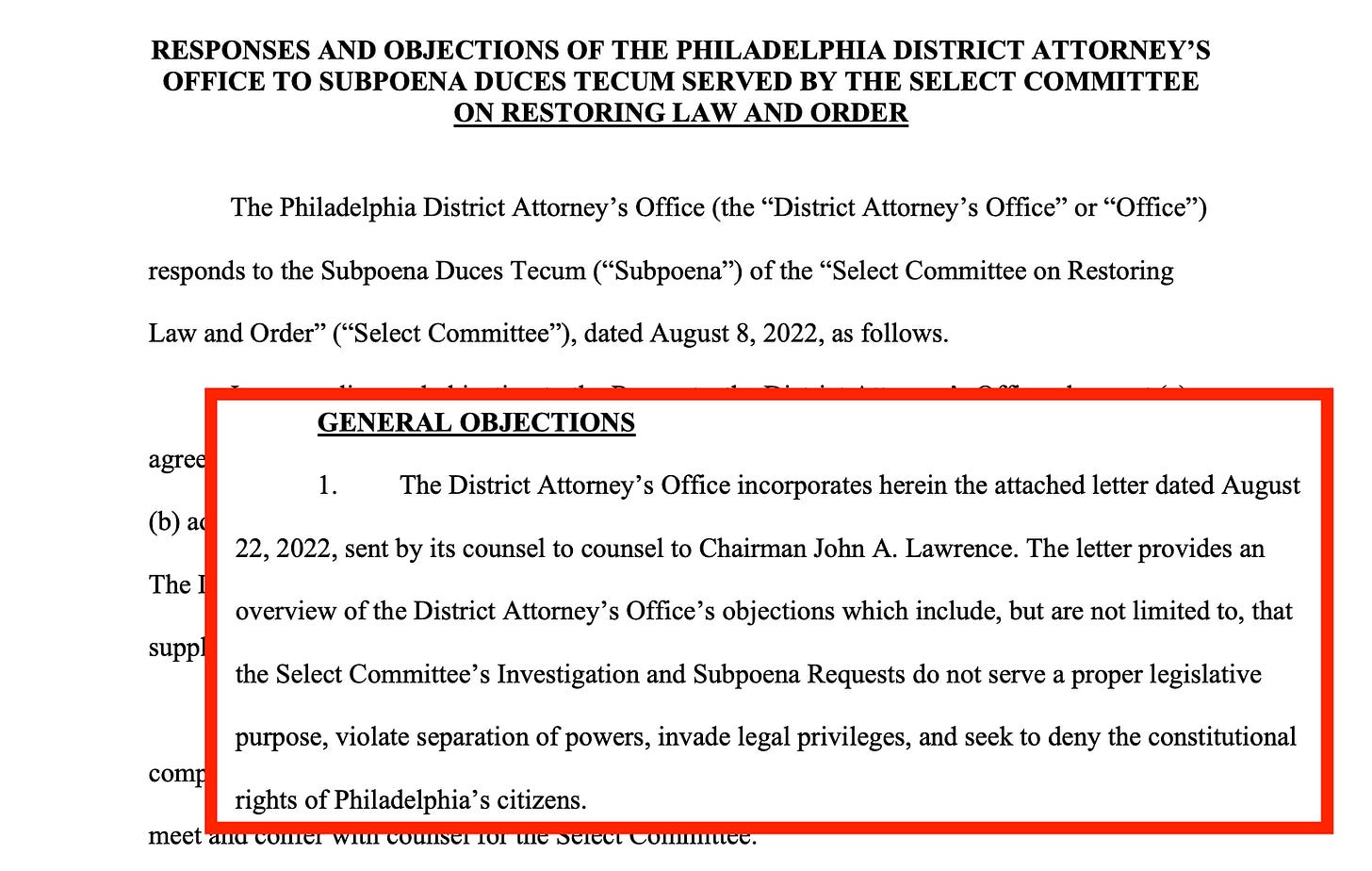Exclusive: Philly DA Larry Krasner rejects Pennsylvania legislative subpoenas
Lawyers for the DA's office say the lawmakers' requests don’t serve “a proper legislative purpose” and “violate separation of powers,” among other objections.
Philadelphia District Attorney Larry Krasner on Monday completely rejected Pennsylvania lawmakers’ requests for information about his office, according to documents provided to Law Dork.
Lawyers for the Philadelphia District Attorney’s Office told lawmakers that the requests don’t serve “a proper legislative purpose” and “violate separation of powers,” among other objections.
Krasner, the defense-attorney-turned-prosecutor, is a twice-elected Democrat to the Philadelphia District Attorney’s Office — re-elected most recently in November 2021. Republicans in the legislature nonetheless passed a resolution in June forming a committee to look into crime in Philadelphia as part of ongoing interest from some lawmakers in impeaching Krasner.
“Whether the House Republicans driving the impeachment effort like it or not, the citizens of Philadelphia have spoken at the polls; it is not up to House Republicans to try to effectively overturn that election,” lawyers for Krasner and the office told Rep. John A. Lawrence, the chair of the select committee, on Monday.
The resolution forming the Select Committee on Restoring Law and Order discussed potential legislation, but also “recommendations for removal from office or other appropriate discipline, including impeachment” for relevant officials. The “district attorney” position is the only one specifically mentioned.
After the Republican-majority committee was formed, the committee issued the subpoena to Krasner’s office.
In the subpoena response sent to the select committee on Monday, lawyers for Krasner and the Philadelphia District Attorney’s Office objected to the committee’s subpoena request for records relating to his office across the board.
Specifically — and repeatedly in response to every request — the subpoena response details the office’s position that the requests from the select committee “do not serve a proper legislative purpose, violate separation of powers, invade legal privileges, and seek to deny the constitutional rights of Philadelphia’s citizens.”
The letter to Lawrence that accompanied the subpoena response lays out the objections in more detail, stating that even the sponsor of the resolution creating the select committee called the resolution “a continuation of [the] Krasner impeachment effort.”
A section of the lawyers’ letter lays out how unprecedented this opposition is, stating, “Since the founding of this Commonwealth, the only time an official has been impeached is for having committed crimes; that is plainly not so here. Indeed, no official has been impeached for policy differences like those that are the subject of the Select Committee and its Subpoena.”
The letter also claims that the focus on Krasner and Philadelphia “reveals that House Republicans are not interested in investigating and impeaching district attorneys who actually break the law,” claiming that other district attorneys “have recently committed impeachable acts” without facing select committees or subpoenas.
Additionally, the subpoena response states that many of the “documents and information” requested are “protected by the attorney-client privilege, executive privilege, deliberative privilege, investigative privilege, and work product doctrine.”
Due to the objections, the subpoena response states that “the District Attorney’s Office will not search for or produce any documents in response to this Request.”
Given the wholesale rejection of the subpoena request, the office’s lawyers do note, “If the Select Committee believes that any response or objection is unclear or does not comport with the District Attorney’s Office’s obligations, counsel for the Office is available to meet and confer with counsel for the Select Committee.”



